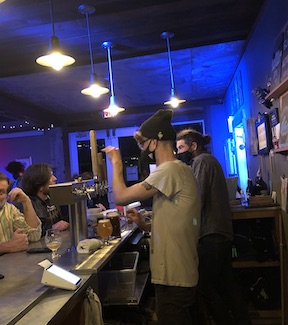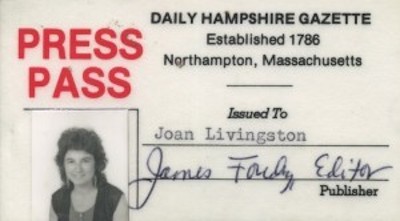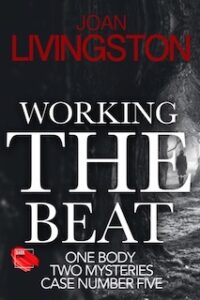One constant in my adult fiction is that each one has a bar. Make that two in my new mystery, Working the Beat, the fifth in the Isabel Long Mystery Series.
The rural hilltowns of Western Massachusetts are the setting for this series. I am talking about populations of about a thousand people. Many of them are one-store, one-school, one-church, and one-bar kind of towns. For many, bars are gathering spots for the locals. That’s certainly true in Conwell, where Isabel Long, the series’ protagonist lives. The local watering hole is called the Rooster Bar and Grille.
Jack Smith owns the Rooster, and Isabel works there Fridays, music night, pouring mostly beer. She and Jack have a relationship much deeper than boss and worker.
And the Rooster’s customers, especially those she calls the True Blue Regulars, are often great sources for Isabel’s cases she’s trying to solve.
Jack Smith runs a friendly bar, but do something stupid and you’re out for six months. Do it again, and you might be banned forever. It took an intervention from Isabel to allow the Beaumont brothers back in, but then again, they did come to her rescue in no. 4 Killing the Story.
Baxter’s is another bar in my series. It’s more of a biker bar, and Dave Baxter, the owner, isn’t so particular who drinks there. In fact, many of the people who got kicked out of the Rooster are customers. Isabel will visit Dave because he knows what’s going on in the town of Caulfield and beyond. Sometimes she meets people of interest there. It’s a little tricky because Dave obviously has the hots for Isabel, but it’s not reciprocal.
One other bar has appeared in my series, Red’s Corner Lounge, in Dillard. This is a seedy little joint that was the setting for a pivotal scene in Killing the Story.
I will confess I’m not a big drinker — one good craft beer will do it for me — or what I would call a bar fly. But I’ve enjoyed the time I’ve spent in bars, raising a glass or bottle, and dancing with my husband when there’s a band. It’s a great place to people watch, a definite hobby of one. And I am fortunate our son, Zack, has a brewery in Shelburne Falls, the village where we live in Western Massachusetts. Floodwater Brewing is a friendly gathering place for the community, with music typically three nights a week. I certainly like going there for a beer and conversation.
Working the Beat is dedicated to Steve and Diane Magargal, the former owners of Liston’s in Worthington, which Hank and I frequented when we used to live in that town. No, the Rooster is not Liston’s, but it certainly was an inspirational place, that and when I tended bar for a long-closed restaurant in the same town.
In this excerpt from Working the Beat, Isabel and Jack are playing cards on what is a dead Friday night at the Rooster because of the Titus Country Fair, which is a popular with Jack’s customers. He didn’t even bother having a band play that night.
Jack shuffles the cards.
“Ready to get beat again?” he jokes.
But before I can answer, I hear two women laughing at the front door, two voices I would recognize anywhere. Cousins Marsha Dunlop and Annette Waters, aka the Floozy and Tough Cookie, are yakking it up.
“Where in the hell is everybody?” Marsha yells.
“At the Titus Country Fair, where else.” Jack puts down the deck. “Can I get you ladies somethin’ to drink?”
Annette snorts.
“Ladies? He sure got us wrong.” She waves her hand. “We’re all set for now. We just came by to see Isabel.”
The two of them move closer, one on either side of me. Both are wearing summer country casual, that is, tank tops and jeans, although Annette’s is a lot tighter than her cousin’s. She’s obviously on the prowl tonight. My keen sense of smell detects they’ve already imbibed in a few beers or something stronger, and maybe a few tokes of weed. Marsha’s bushy mane of hair tickles my shoulder.
“Me? What for?”
“You goin’ to the fair tomorrow?”
“Yeah, I’m taking my mother in the afternoon.” I glance at Jack when he coughs. “And then, I’m going with Jack to the demolition derby. Gotta see you in action, Annette. Heard you’re quite the driver.”
The two women make snorting laughs. Annette will be driving a car she and her son, Abe, fixed up. From what I’ve been told, this is the fifth year the Titus Country Fair has held a demolition derby, which the fair’s board decided correctly would pump up attendance. As Annette told my mother and me when we were at her garage not that long ago, she’s competed in the last two years, the first year on a dare. She was the first woman to compete in the derby. Now, there are a few other like-minded females who enter, although she claims they aren’t up to her driving skills. Her team’s name? Wild Woman. It could be Wild Women since Marsha helps on the sidelines, and yeah, they certainly fit that nickname. But both liked the name Wild Woman better. Ma and I saw the car, painted black with shocking pink lettering on the trunk: “Rough Waters Garage and Junkyard” and “Dear Old Dad Chet Waters.” It definitely looks like something a wild woman would drive.
“Just be careful,” my mother told her.
“Don’t you worry about me, Maria. I’ll just smash whatever car gets in my way,” she responded with a cackle. “This is my third year. I’ve figured things out.”
Now, inside the Rooster, Annette gives my arm a playful punch.
“What’s up?” I ask her.
“Glad to hear you and your mother will be at the fair in the afternoon. Make sure you go to the exhibit hall at around two. You won’t be disappointed.”
“Did you grow something?”
She laughs.
“Sure did, but nothin’ I could show at the fair. This is somethin’ else. Just come. Okay?”
This is unlike Annette to be so coy, but I’ll go along with it. My mother and I’ve grown fond of her ever since I took on her case to prove that her father, Chet, wasn’t too drunk to get out of his shack of a house when it caught fire, that someone had it in for him. It was my second, and it brought me in touch with a rather rough crowd, country style, including the Beaumont brothers, Gary and Larry, notorious drug dealers who still manage to get away with it. But like the Floozy and Tough Cookie, I grew to like the brothers when I got to know them better for my third and fourth cases.
But this isn’t the time to linger. Annette’s expecting an answer.
“My mother and I can do that. We’ll see you there. Promise.”
She nods.
“Good. Hey, we’re heading to the fair now. Horse pull night.”
“Didn’t realize you were such a fan,” I say. “I thought machinery was more your style.”
“She’s too much,” Marsha says as she gives her cousin a chop to the arm.
The Tough Cookie is all grins, which is a refreshing change from her usual scowl, well, except when she’s on the hunt for a man here at the Rooster or some other drinking establishment. Annette’s got her hair pulled into a nice ponytail and she’s wearing earrings, small gold hoops. She sure smells a lot nicer than her cousin. Now, I get it. She’s hot on one of the guys at the horse pull.
“So, who’s the guy you’re rooting for tonight?” I ask.
Ouch, now it’s my turn for a slap to the arm.
“You sure got me all figured out, Isabel,” Annette says with a snort.
The Tough Cookie mentions the name of a Semi-Regular Rooster who has a working farm one town over in Penfield. As I recall, he has a side business installing septic systems.
“Isn’t he married?”
“Was. Anyways don’t forget about tomorrow.”
ABOUT THE PHOTO ABOVE
That’s our son, Zack, on the right, and his brother, Ezra, pouring beer atFloodwater Brewing Co. in Shelburne Falls, Mass.
LINK
Here’s where you can get a copy of Working the Beat: mybook.to/workingthebeat




